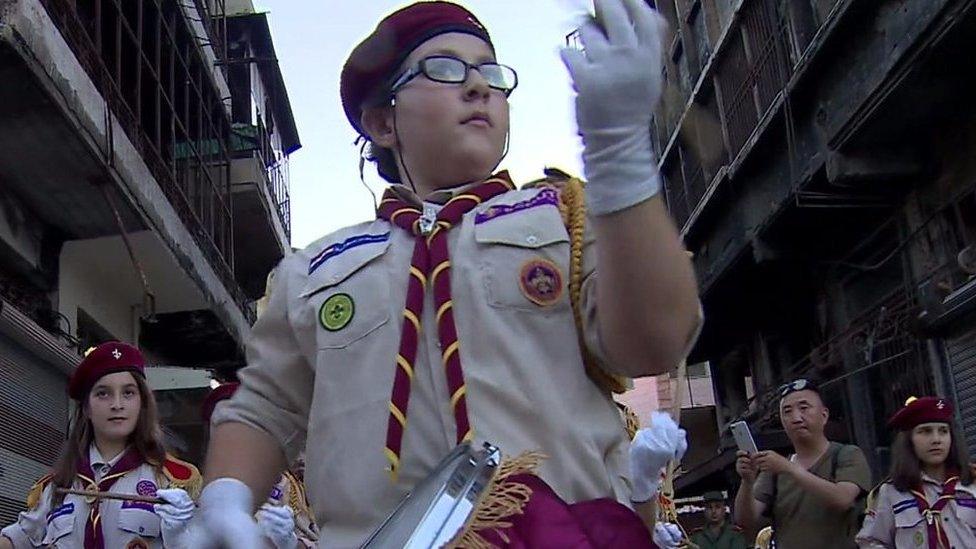Russian plane deaths in Syria: What will be the consequences?
- Published
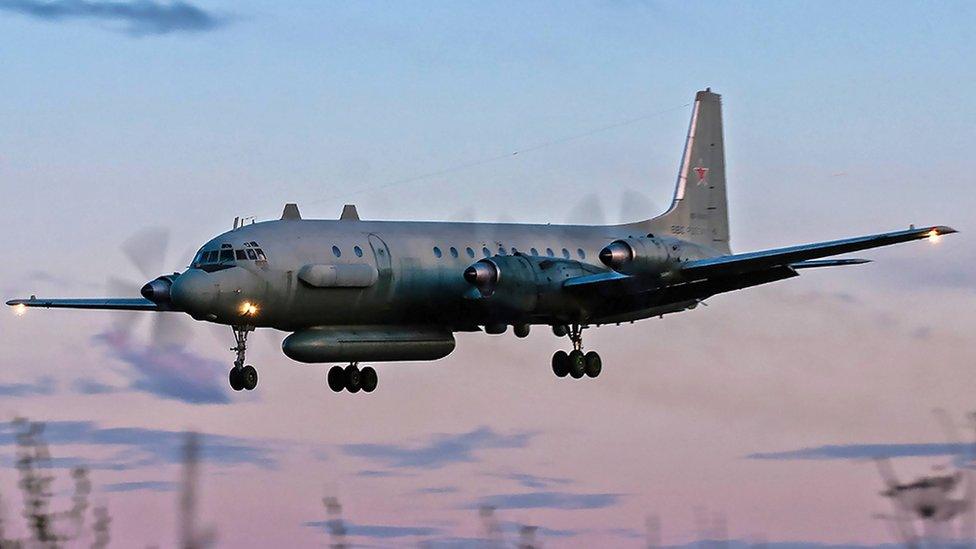
An example of a Russian Il-20 military plane, like the one downed in Syria
The downing of a Russian military plane by Syrian forces after an Israeli air raid has raised tensions between the nations involved. But will it have any long-term consequences?
In many ways it is surprising that this is the first major incident to involve the accidental shooting down of an aircraft, given the intensity of the long-running and multiple air campaigns under way over Syria.
Russia and its Syrian allies are attacking rebel positions from the air. The US and its allies have been striking Islamic State group targets although, with a brief up-tick over recent days, this campaign is winding down.
Israel is conducting an entirely separate air campaign both to contain Iran's military presence in Syria and, especially, to prevent the manufacture and transfer of advanced missiles to Iran's regional ally, Hezbollah, in southern Lebanon.
Russia has powerful radars and modern surface-to-air missiles at its base in Syria, but it chooses to watch the Israeli operations unfold and do nothing.
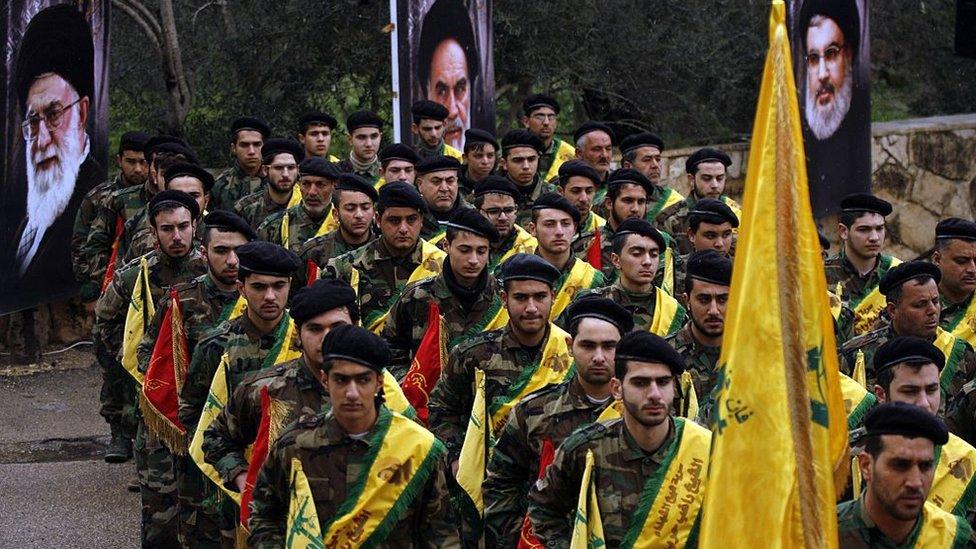
Israel sees an increasing threat from Iran and its allied militia
To try to avoid accidents and confrontations in Syria's skies a so-called de-confliction system has been put in place.
The US is able to exchange information with and contact Russian commanders. Israel has established its own hot-line through which Russian-speaking military air controllers can talk to their counterparts at the Russian air base in Syria.
There have been close shaves; sometimes information has not been forthcoming from one side or another, but the de-confliction regime has generally worked.
The incident involving the Russian intelligence gathering aircraft is exactly the sort of thing these procedures were intended to avoid. So what went wrong?
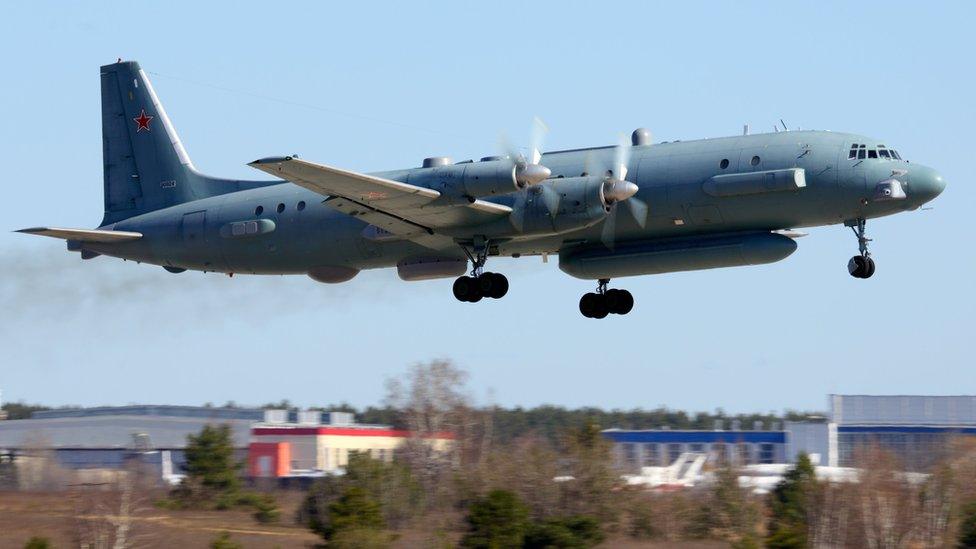
The Il-20 aircraft was returning to a Russian base on the north-western coast of Syria (file photo)
The one thing that both Israel and Russia agree on is that the plane was downed by a Russian-supplied Syrian surface-to-air missile battery - in all likelihood an S-200, known in western circles as an Sa-5 or by its Nato code-name Gammon.
Israel insists it is the Syrians who must shoulder the blame; the downing of the aircraft was due, they say, to "extensive and inaccurate Syrian anti-aircraft fire".
Russia though holds Israel ultimately to blame, making two charges:
Firstly, that they were only belatedly warned of the Israeli mission north of Latakia, with just one minute's notice.
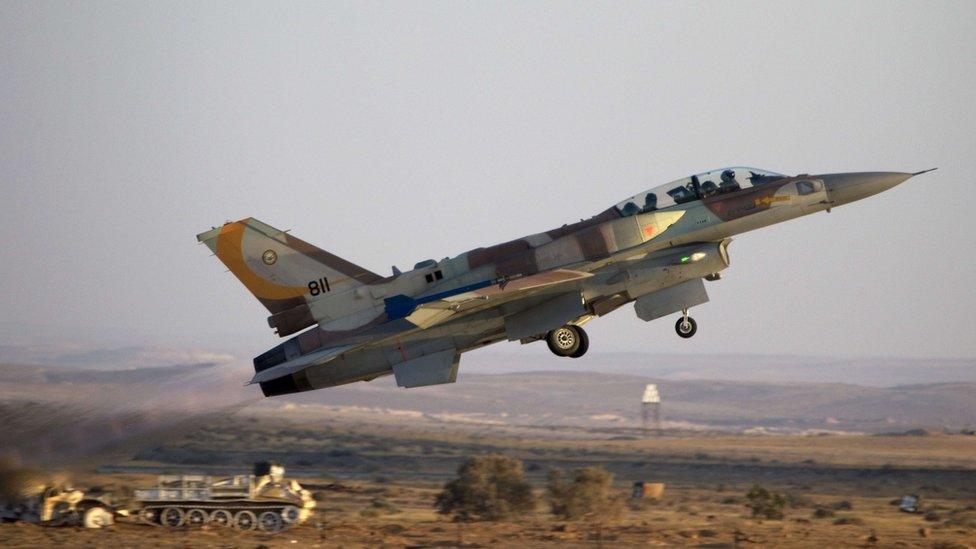
Israel says its jets were within Israeli airspace
And secondly, that the Israeli pilots used the Ilyushin-20 as "cover". In other words, the "Israeli pilots put it in the line of fire coming from the Syrian air defences".
Russia has released a map showing what they say are the details of the incident.
The Ilyushin takes off from the Russian base at Hmeimim and flies eastwards and then north, before flying southwards and then west - essentially a figure of eight. It then turns back towards the air base heading east again when it is hit over the Mediterranean Sea.

The Russians show the track of the Israeli jets, which appear to have released their air-launched weapons at Syrian ground targets north of Latakia from a position to the west or seaward side of the Russian aircraft.
Israel argues that the Russians' facts are wrong. It expresses regret at the loss of life but insists that the de-confliction system is working well.
It says that the Syrian batteries fired "indiscriminately" and that the Israeli jets were actually in Israeli air space - so well to the south of where the Russians say they were - at the moment when the Ilyushin was hit.
What is noteworthy in the Israeli account is that they actually note the targets that they were attacking, said to be a Syrian facility to manufacture "accurate and lethal weapons" (almost certainly missiles) which were "about to be transferred on behalf of Iran to Hezbollah in Lebanon".
It is unusual for Israel to acknowledge any of its strikes in Syria.
Israel also says that it will "share all the relevant information with the Russian Government to review the incident and to confirm the facts in this inquiry".
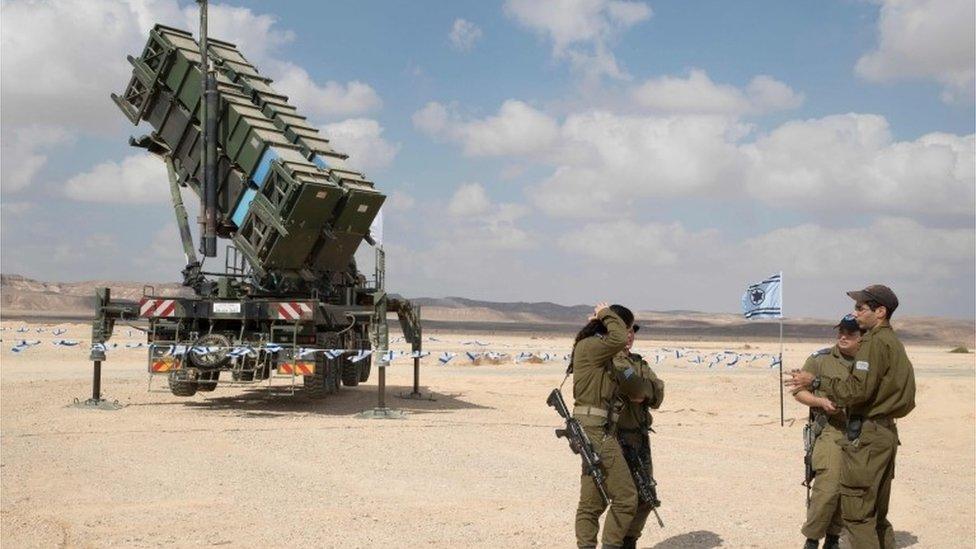
Israel downed a Syrian fighter over the Golan Heights in July
Russia is clearly angry. It has lost an aircraft and the lives of its 15-person crew. It needs to register its displeasure but is also reluctant to condemn its regional ally Syria.
Israel and Russia have a remarkably close relationship and a clear understanding about Israel Defense Forces (IDF) operations in the region. So might this episode change this?
I think that is doubtful. For one thing the air campaign in Syria is seen by Israel as a vital strategic necessity to thwart, as they see it, Iran's growing influence.
And for Russia to try to physically interfere with Israeli operations would go entirely against the policy pursued by Moscow up till now.
It also might require the deployment of additional resources in Syria, which again is unlikely at a time when Russia is hoping to scale down its practical involvement there.
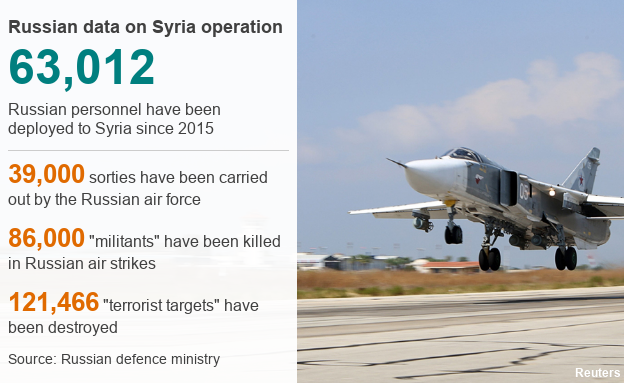
Israel may need to scale back its air operations for a period. But this crisis will almost certainly blow over.
Think back in Syria. It was not so long ago that Turkey deliberately shot-down a Russian jet. There were short-term consequences, but Turkey subsequently became a close partner of Moscow in trying to resolve the Syrian crisis.
In this case it is the competence of Syria's air defence brigades that probably most alarms the Russians in private. That is probably where the information sharing needs to be improved.
President Putin seems to have decided to avoid making a drama out of the crisis, noting that "chance circumstances" were behind the downing of the Russian plane and that this episode was very different to the shooting down of the Russian jet by Turkish forces in November 2015.
- Published17 September 2018
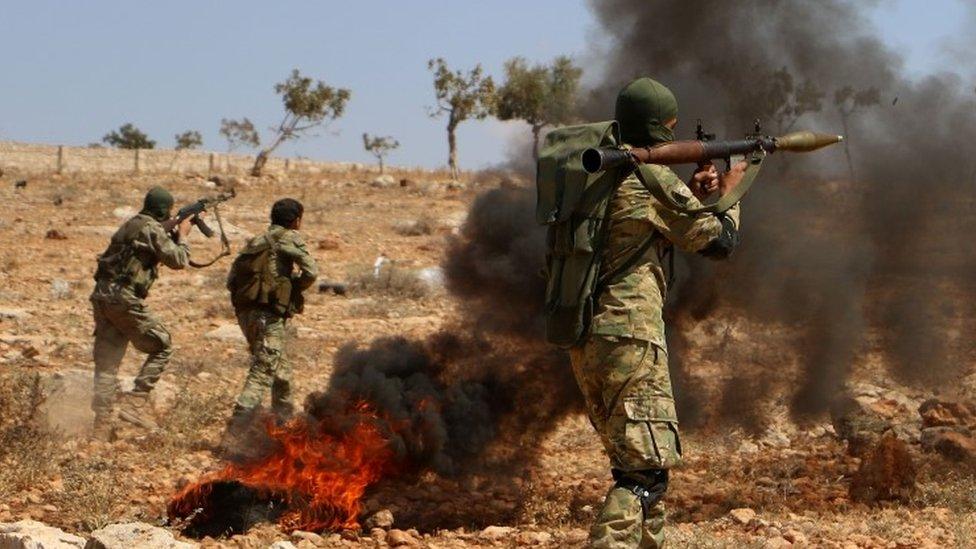
- Published24 July 2018
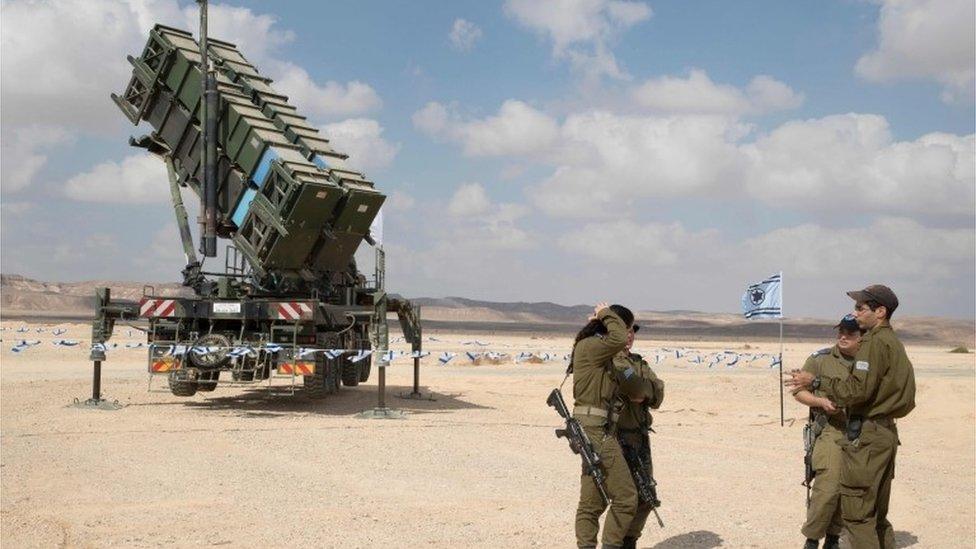
- Published10 February 2018
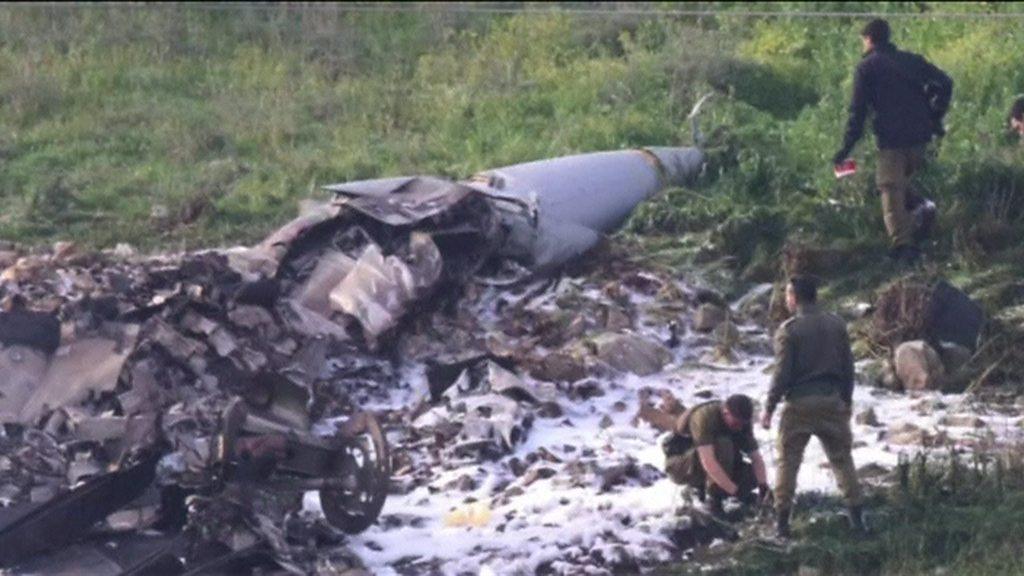
- Published2 November 2017
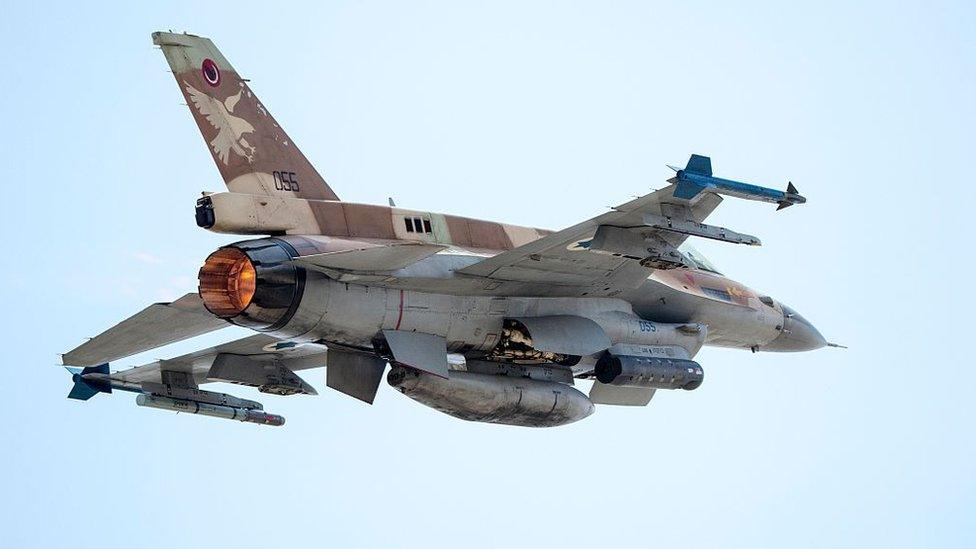
- Published12 April 2018
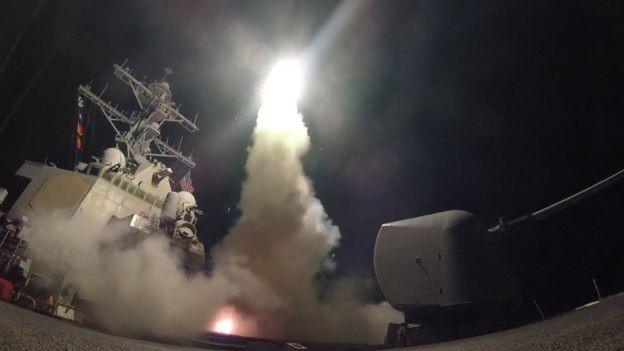
- Published16 August 2018
